“Sometimes it takes an expert to point out the obvious.”
–Scott Allen
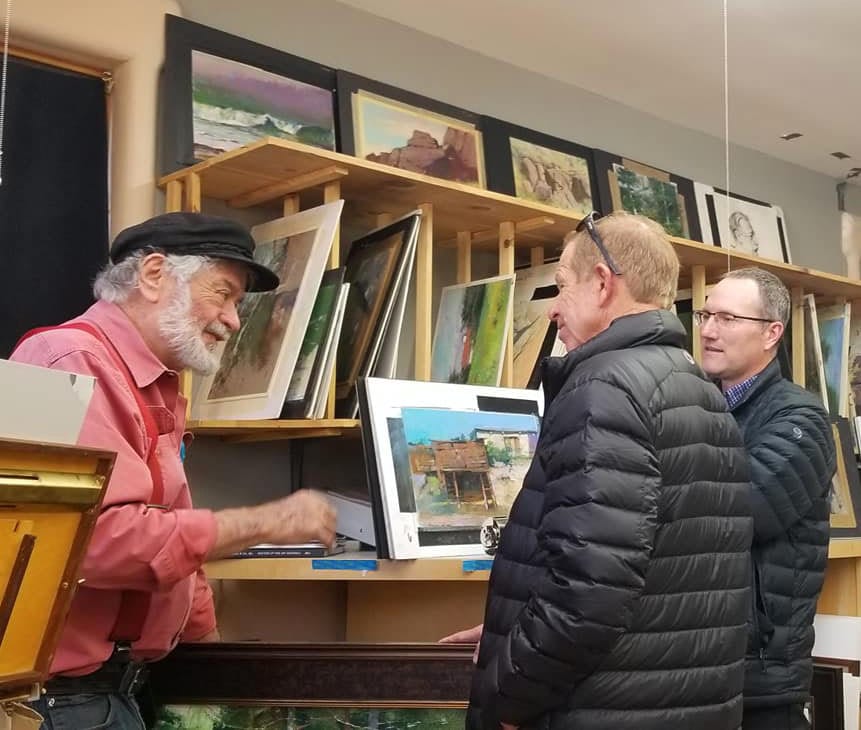
On a recent fall afternoon, noted painter Ken Spencer, my wife Lynn and I were privileged to accept an invitation from Albert Handell to visit his studio, at his home in Santa Fe, New Mexico. Two of his students were working there, amid the stored stacks of paintings and around the large glass-covered table surrounded by a shelf of innumerable oil paint tubes, of all kinds and colors. After a warm greeting for all of us, he swung around to his well-stocked storage files and exclaimed “Here, let’s look at some paintings!” Ken and I were in the presence of a mentor.
You might know Albert as a master pastellist and oil painter, who teaches both nationally and internationally. He has been a member of OPA since 1997. In 1987, the Pastel Society of America elected him into the Pastel Hall of Fame. In his “Ask Albert” newsletter, he answers artists’ questions regarding painting and career building. In January of 2020, he will be participating in the Palm Springs Mentoring Program.

by Charles-Joseph Natoire
What will Albert be doing in this program? As you might know from Homer’s Odyssey, Mentor was the teacher/trainer that Odysseus selected for his young son Telemachus, to raise him up in his absence. Telemachus came of age during this tutoring, and grew to be an emotionally and physically mature warrior, like his famous father. In Palm Springs, Albert—like Mentor–will be doing what he has been doing for years, and what he did with Mr. Spencer and I on that warm fall day in his studio: taking questions, enlarging our comments, introducing his own tips and techniques, and sharing the love of art and painting with fellow artists. Plus, he illustrated it all by demonstrating how it all worked in his own paintings. Ken and I listened, and learned.
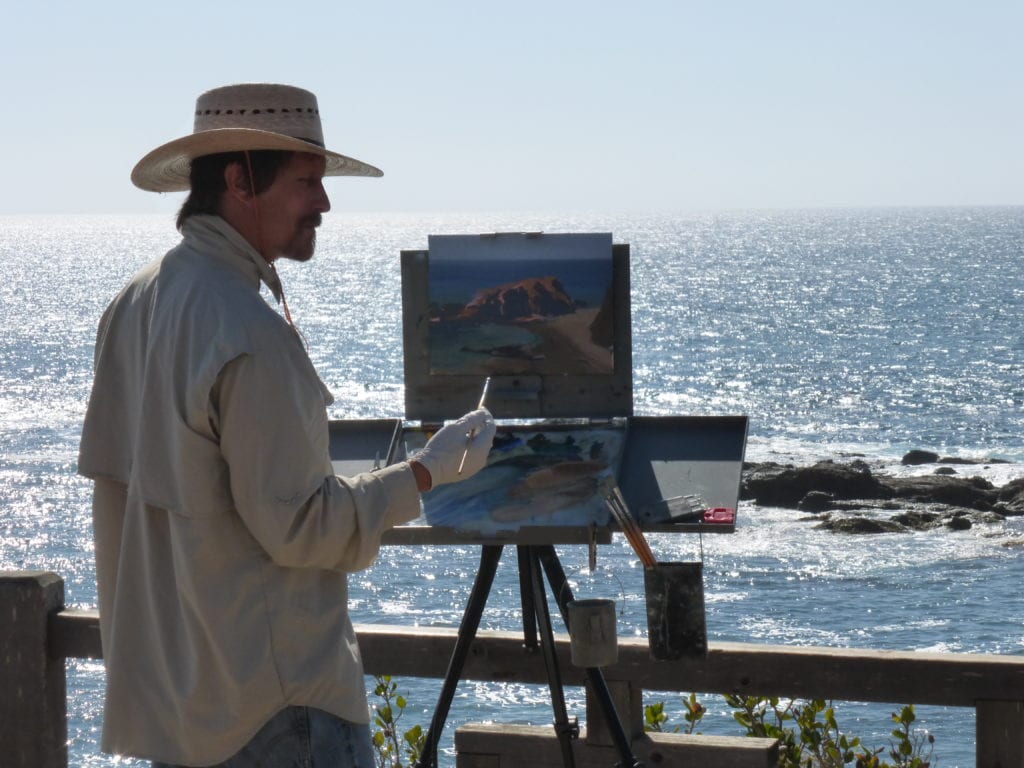
and plein air mentor
I believe that every working artist wants to improve their skills, deepen their understanding of the arts, and discover that way of working that is most natural to them and most effective for communicating their personal vision. How can we do that most efficiently?
First, we need to take advantage of all the ways that we can learn. We can see what we need to know; read it; or hear it. We can receive instantaneous revelation or inspiration. Someone may tell us, then we could choose to act on it. Or someone may tell us, we try it, then we practice it. Or someone shows us, we try it, and practice that. Which is the most effective way to learn? I would suggest that it will be the way that gives you the result you want and that will stay with you.
In the visual arts, Jackson Pollock benefited greatly from the input of Thomas Hart Benton, and painter Bo Bartlett deepened his work through the profound influence of both Nelson Shanks and Andrew Wyeth. Andrew’s father, N.C. Wyeth, enjoyed a very successful career as an illustrator based on the foundations of design as mentored by the great Howard Pyle.
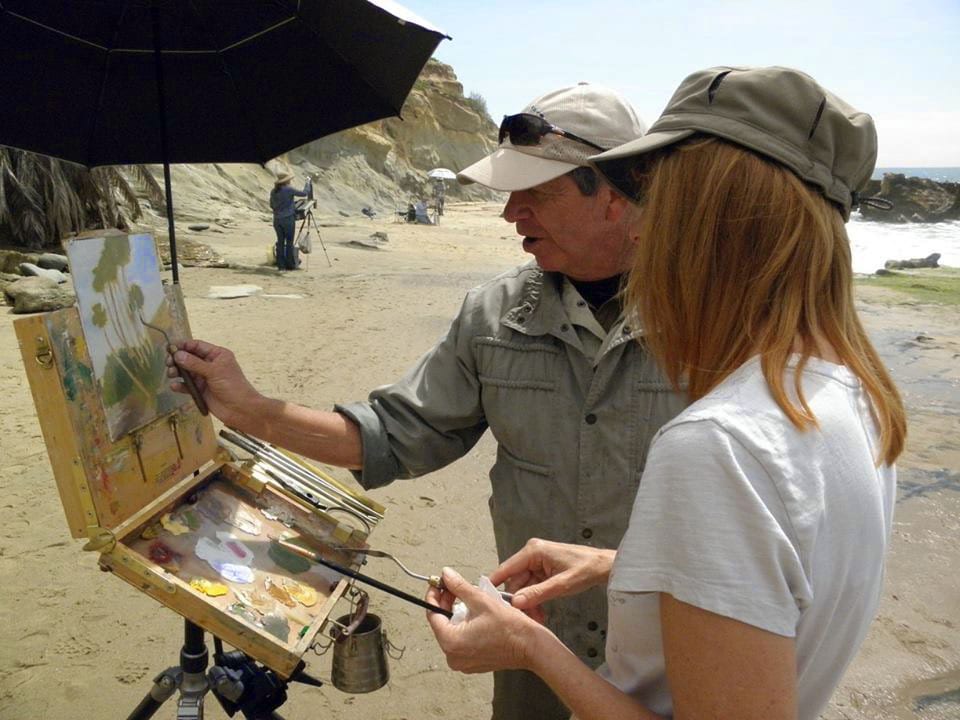
In this way, the rewards of having a mentor and being a mentor are invaluable. My own experiences as a mentor over the past forty-five years have brought some of the greatest lifetime rewards in my dual career as artist/teacher. From it all, I have learned that self-education is necessary, and that it is a lifelong process…and that it happens much more quickly and personally when you have someone standing right there who knows what they’re doing while you practice what you want to know.
The accomplished classical figure- painter Ryan Brown has authored an article entitled, “What It Takes to Become a Professional Artist.” I think this excerpt from that article would interest anyone who is headed in that direction:
“In the book Peak: Secrets from the New Science of Expertise (2016), co-authors Anders Ericsson and Robert Pool discuss in-depth the basic realities of human development. It expands the concept of the 10,000 hour rule to include three key factors. One is time spent in practice, of course. The second factor is that this time in practice is spent in a well-designed progressional system meant to build skill or knowledge from simple to more complex. And the third is to have that organized practice watched over and criticized by one who has mastered the elements of the given field of study…Without an organized or deliberate approach to practice, one is more likely to merely become increasingly efficient at doing something mediocre, rather than developing greater skill and a deeper knowledge. And having consistent criticism from a proven source serves to bring awareness to elements of knowledge one is unlikely to discover on their own.”
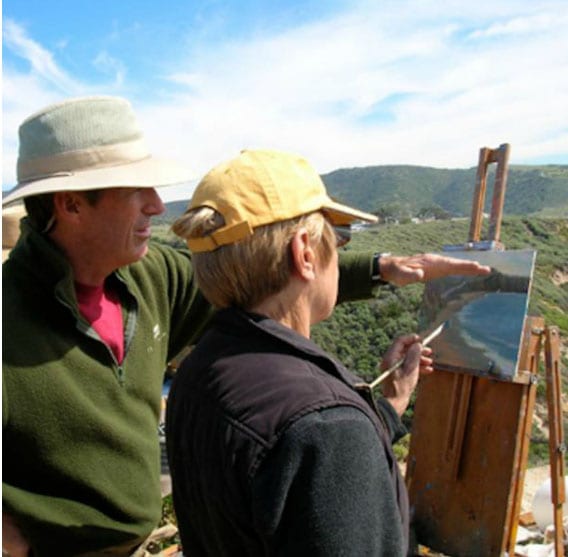
Working with a mentor can open up your universe. Let’s say you’re an artist—specifically, a female actor– trying to break into Hollywood: how can you make that happen? In a recent interview, Reese Witherspoon (a highly-accomplished female actor) was asked that very question. She called on employed actresses, and female board executives and directors to take up the mantle of mentoring, to take aspiring actors under their wing, take them to events, to open up networking opportunities for them. She knows that an effective mentor may help her/his mentee in many ways:
- Develop the mentee’s skill and competency
- Provide a second, experienced perspective
- Improve confidence in the ability to focus, problem-solve, then execute
- Improve communication skills.
- Provide practice in accepting feedback and critique
- Expand contacts
- Inform about opportunities, events
- Teach the mentee how to be accountable and maintain a professional relationship
- Share the mentee’s success, encouraging them to share their success with others, and possibly become a mentor themselves.
Isabel Lamont points the way to effective self-education in her article entitled “Mentors will be the Key to Success in Today’s Art World“(from the website Visual Arts Re-Imagined). She points out that “the job market for professional artists isn’t projected to grow at any miraculous rate over the next four years, and only ten percent of all artists who graduate end up making a living as a working artist,” in any 9-5 situation. However, there is increasingly more and more demand for the visual arts in film, digital media, and in print, and our “concept of what a working artist looks like will be vastly different from before…We are in the age of creative entrepreneurs, and people want to purchase art that is sold well to them,” such as online platforms like Instagram, personal websites and blogs. “Whether or not you ‘make it’ will depend less on your raw talent and more on the connections you build,” Lamont concludes.
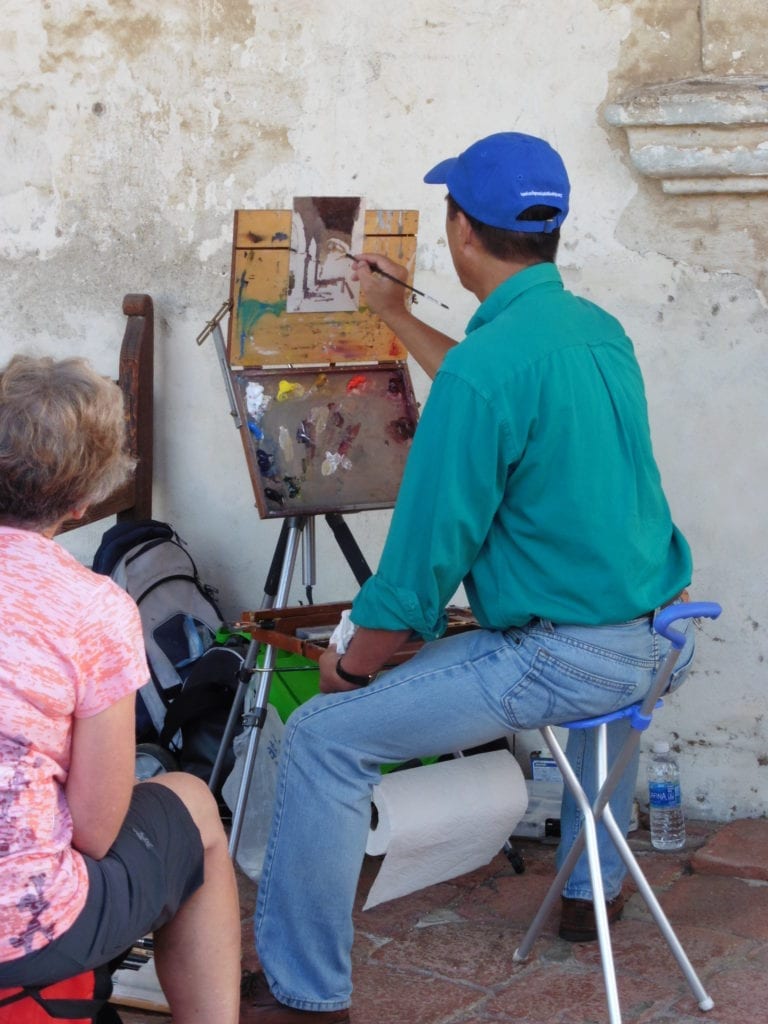
A mentor may provide connections to one working to be a fine artist. But more so, a mentor can help one to refine those particular skills to create the quality artwork that is initially necessary, before it can even be appreciated as fine art. That was the system of the Renaissance, in which young artists learned their craft from the masters. It is true today, in many artists’ studios across the globe, in which interns and assistants learn the craft from experienced masters. It is a relationship that is mutually beneficial. Both the mentor and mentee “are looking to grow in some way,” Lamont suggests. She goes further to say, “The ability to be mentored is one of the most crucial attitudes of exceptionally successful people.”
Finally, Lamont concludes: “For creatives today, it will be…mentors…who will help them embrace the changing art world. In today’s economy, creatives will need to adopt a wide variety of skills, from their craft to business skills to emotional intelligence skills, and the most efficient and valuable way to acquire these skills is through being mentored.”
To be mentored, one needs to put ego aside, to be receptive, to be humble. In the article “Seven Benefits of Having a Career Mentor, Even If You Love Your Job,” Natalia Lusinski advises, “Treat every mentor conversation as a learning moment, not as an opportunity to get answers.” In describing a good mentor, she also advises that “Mentors should guide, but not steal the process of your journey.” You don’t have to be a credentialed teacher to be a mentor, just knowledgeable and willing to share personally what you know with those who ask for it—as Mr. Handell did with us.
We can all advance the purpose and elevate the impact of the visual arts on our culture if we learn more about what we do. It will take all of our lifetimes.
Find a mentor… be a mentor… and keep on painting!
Leave a Reply